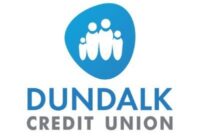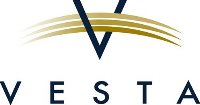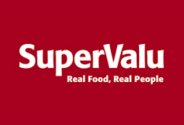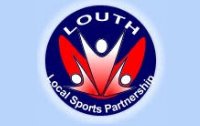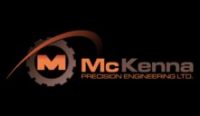A Family Guide to Treatment Options in Ireland
Understanding What’s Available and How to Access Help
When a loved one is struggling with addiction, knowing where to turn can feel overwhelming. As a family member, you may find yourself asking:
-
What types of treatment are available?
-
How do we start the process?
-
What role can I play in their recovery?
This guide outlines the main treatment options for substance use in Ireland and offers practical advice on how to navigate the system — whether your loved one is ready to seek help or you’re preparing for that possibility in the future.
Understanding Addiction as a Health Condition
First, it’s important to recognise that addiction is a complex health condition, not a moral failing. Recovery is not as simple as just “stopping.” It often requires a combination of medical support, psychological care, and community-based services. The good news? Help is available, and recovery is possible.
Key Types of Treatment Available in Ireland
Ireland offers a range of addiction treatment options, including both public (HSE-funded) and private services. Most treatment pathways begin with an assessment by a GP, addiction service, or community organisation.
1. Detoxification (Detox)
What it is:
The medically supervised process of safely withdrawing from substances (e.g., alcohol, heroin, benzodiazepines).
Where it happens:
-
Specialist detox units (e.g., Cuan Dara, Coolmine)
-
Some hospitals (via psychiatric or addiction services)
-
At home, with GP support and community services (in some cases)
How to access:
-
Referral from a GP, HSE addiction clinic, or community organisation
-
Long waiting lists may apply in public services
Note for families:
Detox is just the first step — not a complete solution. It’s often followed by rehabilitation or counselling.
2. Residential Rehabilitation (Rehab)
What it is:
Structured, inpatient programmes that offer therapy, education, and support over several weeks or months.
Types of programmes:
-
Short-term (28–40 days): Intensive therapy and recovery work
-
Medium- to long-term (up to 6 months): Ideal for people with long histories of substance use or complex needs
Examples of residential centres in Ireland:
-
Coolmine Therapeutic Community (Dublin and Ashbourne)
-
Bushypark (Co. Clare)
-
Hope House (Mayo)
-
The Aislinn Centre (Kilkenny – for 15–21 year olds)
-
Cuan Mhuire (Nationwide)
How to access:
-
Through a GP or local addiction service
-
Apply directly to some centres (they’ll advise on referral requirements)
-
A medical card may cover part or all of the cost for public beds; private treatment is also available
3. Community-Based Services
What they offer:
Outpatient support such as:
-
Keyworking/case management
-
Counselling (individual or family)
-
Group therapy or peer support
-
Harm reduction (needle exchange, naloxone distribution)
-
Practical help (housing, legal support, healthcare access)
Examples:
-
HSE Addiction Services (via Community Healthcare Networks)
-
Merchants Quay Ireland
-
Ana Liffey Drug Project
-
Local Drug and Alcohol Task Forces (DATFs)
How to access:
-
Often self-referral is possible
-
GP, probation services, or family services can refer too
4. Medication-Assisted Treatment (MAT)
What it is:
Medication (e.g., methadone or buprenorphine/Suboxone) prescribed as part of a treatment plan for opioid dependence.
Often combined with:
-
Counselling
-
Keyworking
-
GP or pharmacy support
Where it’s available:
-
HSE addiction clinics
-
Some trained GPs (Level 1 or 2)
-
Approved pharmacies for dispensing
How to access:
-
Referral from GP, hospital, or addiction service
-
Assessment and contract agreement usually required
5. Dual Diagnosis and Mental Health Support
Substance use often coexists with mental health challenges like anxiety, depression, or trauma.
Dual diagnosis support is slowly improving in Ireland but still limited.
Where to start:
-
HSE Mental Health Services (via GP referral)
-
Hospital psychiatric teams
-
Specialist services like the Dual Diagnosis Ireland support network
-
Non-profits offering trauma-informed care (e.g., Aware, Pieta)
6. Youth-Focused Addiction Services
Young people have unique needs when it comes to addiction treatment. Services tailored for youth often include:
-
Family involvement in care
-
Counselling and mental health support
-
Peer mentoring and educational support
-
Early intervention and harm reduction
Examples of Youth Services in Ireland:
-
Aislinn Centre (Kilkenny – ages 15–21): Residential treatment programme with family involvement
-
MaCYSS (Monaghan and Cavan Youth Substance Support Service) – A community-based service offering one-to-one support for young people and families affected by substance use
-
Foróige Drug and Alcohol Projects – Youth-specific outreach, education, and intervention
-
Jigsaw – Mental health support for young people aged 12–25
-
Youthreach and School Completion Programmes – Supporting at-risk youth in education settings
These services aim to intervene early, reduce harm, and support both the young person and their family through recovery and beyond.
The Role of Family in Treatment
Families are not just bystanders — they are an essential part of the recovery process. Many services now include:
-
Family counselling or education programmes
-
Family visits and involvement during rehab
-
Workshops on enabling, boundaries, and communication
-
Support groups specifically for family members
FASN also offers direct support to families navigating treatment decisions.
What If My Loved One Won’t Accept Help?
This is a common and painful situation. Here’s what you can do:
-
Stay informed — the more you know, the more confident you’ll feel
-
Set and stick to healthy boundaries
-
Encourage help, but don’t force it
-
Seek support for yourself — you don’t have to wait for them to be ready
Sometimes, change begins with the family, not the person using.
Tips for Navigating the System
-
Start with your GP — they can refer you to both public and private services
-
Contact your local Drug and Alcohol Task Force for advice and access to community services
-
Be persistent — waiting lists are real, but stay engaged
-
Keep copies of all referrals, assessments, and appointments
-
Don’t be afraid to ask questions or advocate for your loved one
Final Thoughts
Ireland’s addiction treatment system can be complex, but there are pathways to recovery — and you don’t have to find them alone. As a family member, your role is incredibly important. Whether you’re helping someone take the first step toward treatment or learning how to care for yourself in the process, you are not powerless.
FASN is here to support you — with resources, information, and compassionate guidance every step of the way.
Need support navigating treatment?
Get in touch with the Family Addiction Support Network. We can help you explore options and connect you with services that meet your family’s needs.
Together, We Can Take the Next Step
FASN is here to support, guide, and give you strength
Call us on (042) 935 5251 / (087) 904 6405


